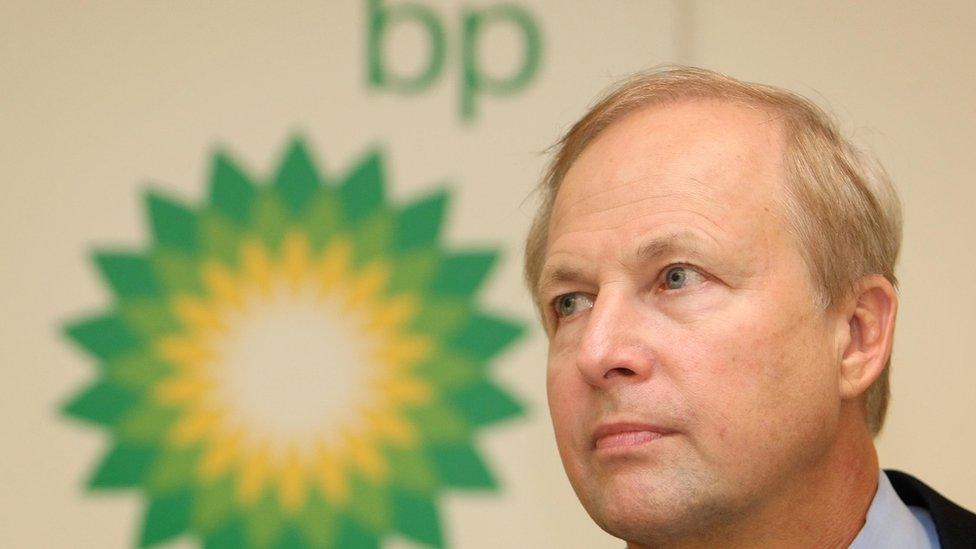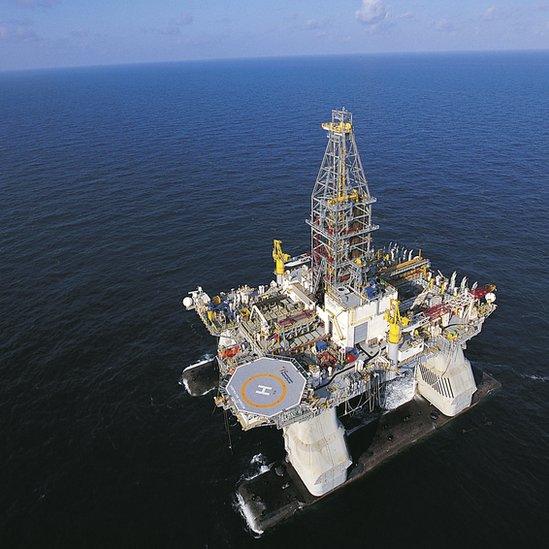What will the BP board decide to pay Bob Dudley this year?
- Published
- comments

If BP group chief executive Bob Dudley was paid £14m for delivering a $6.5bn (£5.3bn)* loss last year, what on earth will he get paid for delivering a profit in 2017?
The answer to this will shed a lot of light on the politically current and intense debate around executive pay.
A year ago, Mr Dudley became the unwilling poster boy for angry shareholders when, at the BP annual general meeting, 59% of shareholders voted against his £14m pay award.
He got the money anyway because the vote was not binding, so the board did not have to do what the owners of the company wanted.
Under rules introduced by the coalition government and championed by then Business Secretary Vince Cable, shareholders can only reject a pay packet or the formula by which it is calculated every three years. That measure gave them more control than they had previously enjoyed but it clearly did not work or go far enough.
Remember, the formula by which Mr Dudley's pay was calculated in 2016 was approved by 95% of shareholders in 2014. Two years later they did not like the answer that formula spat out.
In defence of Mr Dudley, it was not his fault that BP's Deepwater Horizon platform exploded in 2010 killing 11 people and pumping millions of barrels of oil into the Gulf of Mexico (that was on the watch of his predecessor Tony Hayward).

The explosion on the Deepwater Horizon rig led to an environmental disaster
It was not his fault that the price of oil in 2015 came crashing down from more than $100 (£81) a barrel to around $30 (£24) during that year. Given the hand he was dealt, goes the argument, he did a pretty good job.
Some of the arguments will be the same this year. It is not his fault that he had to put another $7bn (£5.7bn) in the Deepwater kitty, but it is also not to his credit that the oil price rebounded to its current price of $56 (£45).
The chairman of BP's pay committee, Dame Ann Dowling, came in for a lot of stick for not using more discretion in adjusting the final pay award down last year and I understand that she has met with dozens of shareholder groups to avoid the same howls of protest this time around.
This April's vote on 2016 pay will also be non-binding but there will be a binding vote on the formula used to calculate pay packets for the next three years. It would take a particularly tin ear for BP to settle on a formula that finds it at such odds with its shareholders in the future.
Many executives are rewarded with a formula that takes a large account of relative performance. Doing badly - but less badly than the competition - means you did well. Even though the company lost money - you can often take home a hefty bonus.
The merits of this approach will be hotly debated this year as around half the companies in the FTSE 100 have binding votes on executive pay formulas. That will add real edge to a debate that has already been politically sharpened by Theresa May's warnings to corporate Britain over the rocketing disparity between bosses and workers' pay.
We are expecting new proposals on changing the manner, and in whose interests, UK companies are run when the government publishes its green paper on corporate governance in March.
I have presented the economic arguments as to why high performance-related pay is actually bad for companies and the economy here before. In short, it can prioritise cost cutting over investment which damages productivity and ultimately living standards. They are arguments that are gaining currency in Whitehall and it is not only shareholders who are disgruntled.
It may be only February, but this year's shareholder spring promises to be a belter.
*the headline loss of $6.5bn includes the compensation paid for the Gulf of Mexico oil spill. The number reported in our news story excludes one-off items to give a better sense of the underlying economics of the company.